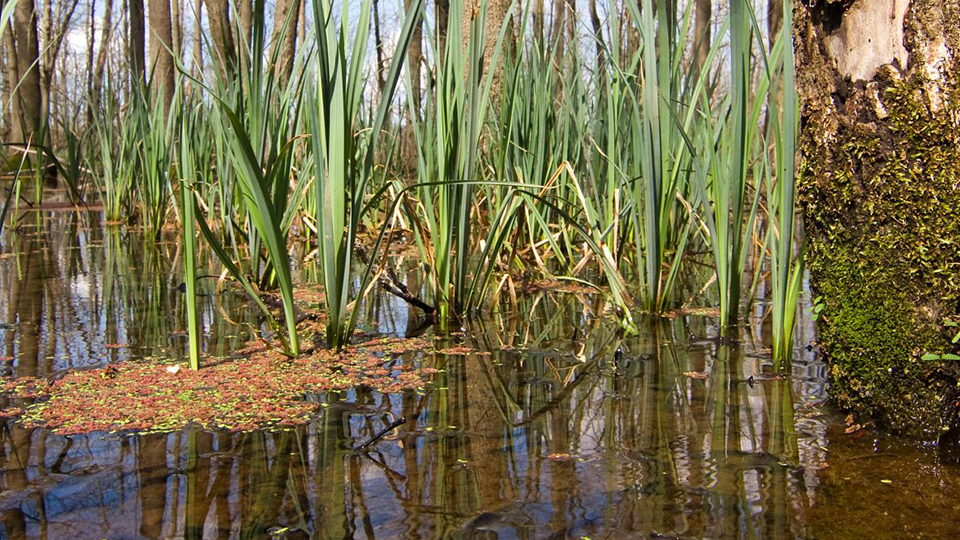Wetlands protections remain intact after pushback
Subscriber Benefit
As a subscriber you can listen to articles at work, in the car, or while you work out. Subscribe Now
Indiana lawmakers removed controversial language from a bill that would have effectively stripped protections for certain wetlands by raising the bar for what can be considered an environmentally sensitive area. But Republican leadership in both the House and Senate expressed support for reviving the language and attaching it to another bill.
The language was ruled non-germane and removed from Senate Bill 414, which deals with septic tanks, during a conference committee hearing Thursday.
The bill, authored by Sen. Gary Byrne, R-Byrneville, had previously passed the Senate with bipartisan support, but Rep. Doug Miller, R-Elkhart, introduced an amendment to the bill in a House committee that would have imposed stricter requirements for a wetland to be considered a Class 1 wetland.
The changes received pushback from Democrats, environmental groups and the Indiana Chamber of Commerce.
House Democrats issued a statement Thursday applauding the conference committee’s decision.
“This is good news for residents of Indiana who overwhelmingly oppose any further rollbacks of our wetland protections,” said Reps. Maureen Bauer, D-South Bend, and Sue Errington, D-Muncie. “While we still have a lot of work to do to strengthen our environment and put in place further protections for our ecosystems, we’re glad to see this language removed from the legislation.”
But supporters of wetlands protections cautioned that the language could still be added to another bill.
“It’s that time of the session where strange things happen in the conference committee process,” said Greg Ellis, vice president of environmental and energy policy for the Indiana Chamber.
In a statement, the Hoosier Environmental Council said it is closely monitoring conference committees to see if wetlands language resurfaces.
“Wetlands are a critical piece of our natural infrastructure that is irreplaceable,” said HEC Executive Director Sam Carpenter. “They provide flood protection, water purification, and help recharge our aquifers. Close to 90% of Indiana’s original wetlands have been destroyed. HEC will do what we can to ensure ongoing protections for our remaining wetlands.”
House Speaker Todd Huston, R-Fishers, didn’t rule out the possibility of the language returning as part of another bill, saying the language inserted by Miller “makes a lot of sense.”
Senate Pro Tem Rod Bray, R-Martinsville, also said he could support changes to how wetlands are classified.
“This is a way to try and make sure that the definition fits in statute the way it’s been practiced in the past,” Bray told reporters Thursday. “We’ll see if that moves or not. I don’t know yet.”
Miller’s amendment included similar language that was stripped from an earlier version of Senate Enrolled Act 389, a controversial 2021 bill that eliminated a 2003 law requiring builders and developers to secure permits for construction and development in certain state-regulated wetlands. The legislation also ended enforcement against landowners accused of violating wetlands laws.
As originally introduced, SEA 389 would have eliminated permit requirements for all classes of wetlands, but that provision was stripped from the bill after environmental groups and state regulatory officials objected to the changes, even persuading Gov. Eric Holcomb to veto the bill if it came to his desk.
Miller, a member of the Indiana Builders Association and the state representative for Indiana on the board of directors for the National Association of Homebuilders, had said the amendment restored the legislative intent of the 2021 bill and provided “some common sense back into the process” of determining how wetlands are classified and allowed for “expansion of our cities and towns.”
Miller could not immediately be reached for comment Thursday morning.
